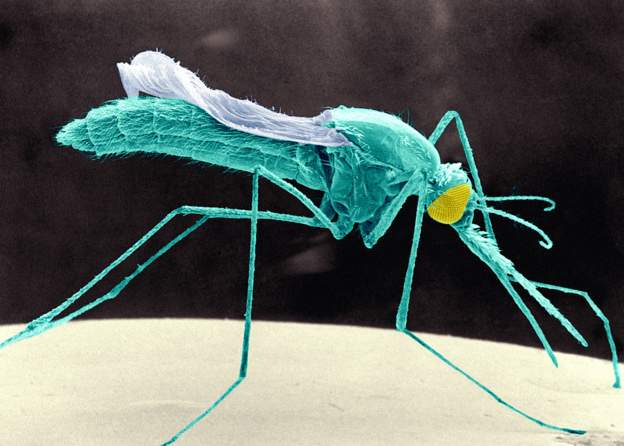By Vivian Ihechu
The Government of Djibouti has broken new grounds in the fight against malaria by using mosquitoes to fight mosquitoes.
Neil Morrison, Oxitec’s malaria Chief Strategy Officer, in a telephone interview with the News Agency of Nigeria (NAN), on Thursday, said the country took the lead in advancing a new solution for the fight against malaria.
He said the country undertook Africa’s first-ever pilot release of Friendly™ Mosquitoes on African soil with a genetically engineered mosquito released in East Africa, and the second time on the African continent.
He said the ‘Djibouti Friendly™ Mosquito Programme’ was in partnership with Oxitec, global biotechnology company and developer of biological solutions to control pests; Djibouti’s National Malaria Control Programme, and a local public health not-for-profit Association Mutualis.
Morrison explained that in 2012, Djibouti was on the verge of eradicating malaria when the country witnessed an upsurge.
He said the Oxitec’s Friendly™ mosquitoes had been designed to fight the invasive new malaria vector in East Africa, Anopheles Stephensi.
He explained that the new malaria vector was posing a major public health threat due to its adaptation to urban environments and evasion of existing malaria treatments and tools.
He said it was observed that a new mosquito had arrived into Africa called Anopheles Stephensi, causing malaria cases to rise from 27,000 in 2012 to 73,000 in 2020, all because of this mosquito.
“It was quite a lot of cases for a country of only one million people,” he said, adding that the highly invasive mosquito specie was from south Asia.
According to him, the Anopheles Stephensi is one of the biggest threats in efforts to eliminate malaria because it is resistant to most insecticides and it thrives in urban areas.
Consequently, in 2018, Djibouti contacted Oxitec to help find innovative solution to the mosquitoes and a way towards malaria control, making the company pioneers in using mosquitoes to fight mosquitoes.
He explained that the Bill Gates Foundation was approached as partners too. “Today we are releasing the first set of our friendly mosquitoes, demonstrating that the solution can give meaningful impact and effective too.”
He said two small genes were inserted inside mosquito genome and that allowed them to release friendly male mosquitoes that would seek out and mate with wild type females.
“Only female mosquitoes bite. So, all of the female offspring from that mating will die thereby reducing the number of malaria transmitting female mosquitoes in the environment,” he told NAN.
However, the self-limiting gene will be passed down a few more generations to subsequent male mosquitoes, allowing them to continue the fight for a limited time before they “disappear” from the environment.
The technology gives more opportunity to eliminate malaria and other vector diseases.
The first release of non-biting Friendly™ Anopheles Stephensi male mosquitoes was conducted in Ambouli, a community in Djibouti City – in the Horn of Africa.
This followed review and approvals from the Government of Djibouti’s regulatory authorities and importation of the Friendly™ mosquitoes into Djibouti in December 2023.
Releases of Friendly™ male mosquitoes will continue over the coming weeks, alongside mosquito monitoring, to study how these released Friendly™ males behave in the Djiboutian communities.
NAN reports that aside being considered among the major threats to malaria elimination in sub-Saharan Africa, the Anopheles stephensi mosquito is a highly invasive species which thrives in urban environments.
Anopheles Stephensi mosquitoes are also a threat to food security.
The mosquitoes are daytime biters, which evade interventions such as bed nets and are difficult to control as they have developed resistance to chemical insecticides.
As it continues to spread, Anopheles Stephensi is predicted to threaten more than 100 million people living in cities across Africa.
Oxitec’s safe, sustainable and targeted biological pest control technology is ideally and uniquely suited to control this public health threat.
Also, Oxitec’s Friendly™ solutions are harmless to local ecosystems, are species-specific, and are already proven to control the dengue -transmitting Aedes Aegypti mosquito, another invasive disease vector, by more than 95 per cent in dengue-prone urban communities.
https://www.youtube.com/watch?v=xTlKMFa1otc
Dr Abdoulilah Abdi, Health Advisor to the President of Djibouti, said in a statement that the government’s objective was to urgently reverse malaria transmission in Djibouti, which had spiked over the last decade.
“Today’s launch is a significant national milestone, but what’s even more exciting is the potential the solution has for the region and entire African continent.
“We hope our pilot release of Oxitec’s innovative Friendly™ mosquitoes will serve as a blueprint for other nations facing similar challenges with the spread of malaria,” he said.
Grey Frandsen, CEO of Oxitec, said: “Decades of progress in the race to end malaria are at risk as mosquitoes are adapting and outsmarting human interventions.
“Our Friendly™ mosquitoes are already proven in Brazil’s fight against the vector of dengue fever.
“The Djibouti Friendly™ Mosquito Programme’s groundbreaking mosquito releases are the opening salvo to a new generation of efforts that are modernising and adapting to the changing nature of the malaria fight.
“Time is of the essence, and this is a major step forward.”
Also, Bouh Khaireh, Director of Association Mutualis, said: “Malaria is a debilitating disease.
“We’re excited to see what Friendly™ mosquitoes can achieve to combat the mosquito driving this national health threat.” (NAN) (www.nannews.ng)
Edited by Salif Atojoko












